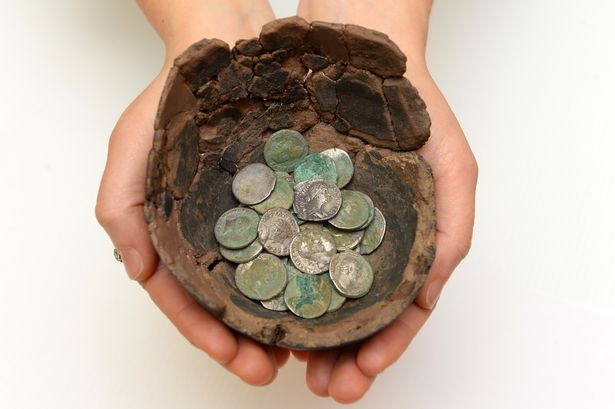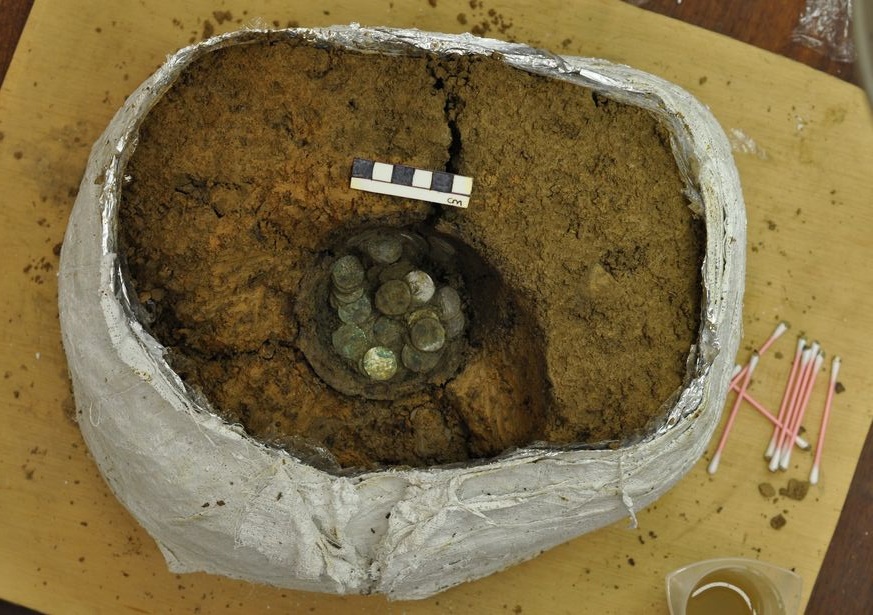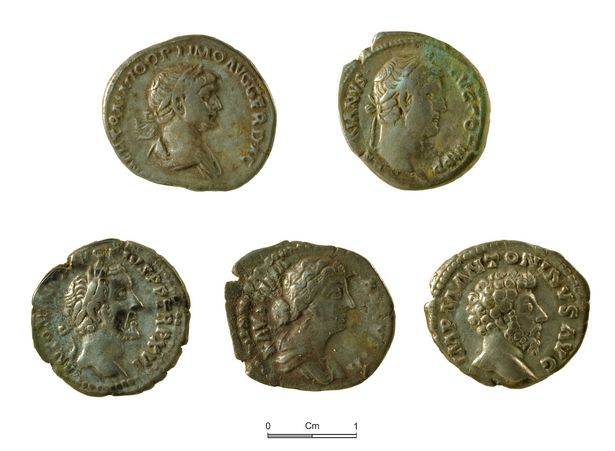A haul of valuable coins issued by Roman general Mark Antony have been discovered in a Welsh field - more than 2,000 years after they were buried.

[Credit: Wales News Service]
It comes as archaeologists claimed to have found a small Roman fort on Anglesey, North Wales, in what has been described as a "ground-breaking" discovery.
The coins - unearthed by two friends out walking - have been hailed by historians as "a significant find".
Dr Richard Annear, 65, and John Player, 43, found the silver coins dating back to 31 BC buried in a field near the small village of Wick, South Wales.

[Credit: Wales News Service]
Consultant Psychiatrist Dr Annear reported the find to curators who were able to lift a small pot containing the coins out of the ground.
A numismatist described the three Roman denarii coins as "worth tens of thousands of pounds".
The rare hoard took place just a mile from another historic find of 130 denarii 15 years ago.

[Credit: Wales News Service]
Assistant keeper at the National Museum of Wales, Edward Besly, said: "Each coin represents about a day's pay at the time, so the hoard represents a significant sum of money."
"The hoard's find spot is only a mile as the crow flies from that of another second century silver hoard found in 2000. Together the hoards point to a prosperous coin-using economy in the area in the middle of the second century."
The three silver denarii were part of a 91-coin haul comprising of currency issued by Roman rulers spanning 200 years.

[Credit: Wales News Service]
Currency dating back to the reigns of Emperor Nero, 54AD-68AD, and Marcus Aurelius, 161AD to 180AD, were also uncovered in the landmark find.
Senior Coroner Andrew Barkley ruled that the coins are "treasure trove" at Cardiff Coroner's Court.
The items will now be taken to the Treasure Valuation Committee, in London, where they will be independently valued.
Author: Gareth Wyn Williams | Source: Mirror [November 28, 2015]